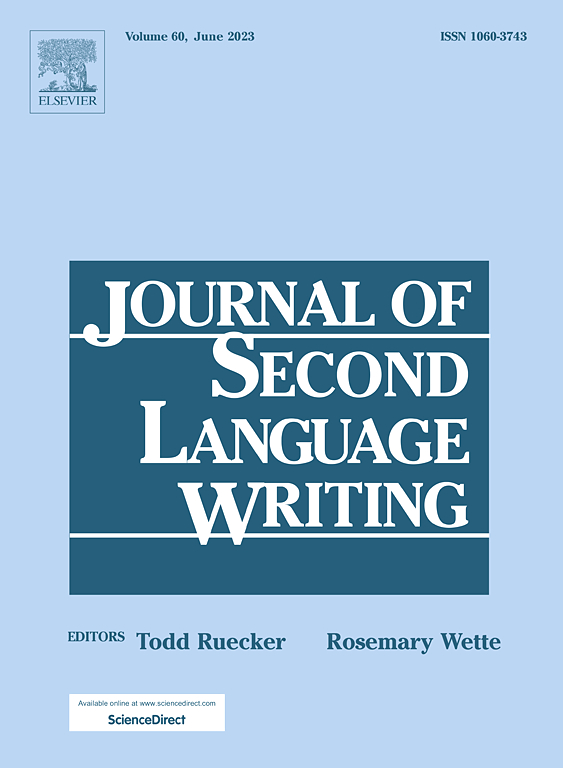AI or student writing? Analyzing the situational and linguistic characteristics of undergraduate student writing and AI-generated assignments
IF 4.5
1区 文学
Q1 LINGUISTICS
引用次数: 0
Abstract
Since the release of OpenAI’s ChatGPT, universities have faced the issue of whether there is still a place for written assignments in higher education. ChatGPT's capacity to mimic various written forms raises questions about the necessity of traditional assessments. Given this background, this study explores to what extent AI-generated assignments can replicate the situational and linguistic features of student-authored assignments. Using a corpus of undergraduate assignments from an English as a Foreign Language (EFL) context, we compare student responses with ChatGPT's outputs. Employing a register approach, we analyze the situational and linguistic characteristics of texts across three different registers—essays, critiques, and personal narratives. Our methodology follows Biber and Conrad’s (2019) framework, encompassing situational analysis, linguistic analysis, and functional interpretation. The findings aim to inform writing instructors and EFL teachers about the strengths and limitations of AI tools, enhancing their ability to guide students in integrating these technologies into their writing processes.
人工智能还是学生写作?分析大学生写作和人工智能作业的情境和语言特征
自从OpenAI的ChatGPT发布以来,大学面临着一个问题,即在高等教育中是否还有书面作业的一席之地。ChatGPT模仿各种书面形式的能力引发了对传统评估必要性的质疑。在此背景下,本研究探讨了人工智能生成的作业在多大程度上可以复制学生撰写的作业的情境和语言特征。使用来自英语作为外语(EFL)上下文的本科作业语料库,我们将学生的回答与ChatGPT的输出进行比较。采用语域分析方法,我们分析了三种不同语域——散文、评论和个人叙述——文本的情景和语言特征。我们的方法遵循Biber和Conrad(2019)的框架,包括情景分析、语言分析和功能解释。研究结果旨在让写作教师和英语教师了解人工智能工具的优势和局限性,提高他们指导学生将这些技术融入写作过程的能力。
本文章由计算机程序翻译,如有差异,请以英文原文为准。
求助全文
约1分钟内获得全文
求助全文
来源期刊

Journal of Second Language Writing
LINGUISTICS-
CiteScore
8.80
自引率
13.10%
发文量
50
审稿时长
59 days
期刊介绍:
The Journal of Second Language Writing is devoted to publishing theoretically grounded reports of research and discussions that represent a significant contribution to current understandings of central issues in second and foreign language writing and writing instruction. Some areas of interest are personal characteristics and attitudes of L2 writers, L2 writers'' composing processes, features of L2 writers'' texts, readers'' responses to L2 writing, assessment/evaluation of L2 writing, contexts (cultural, social, political, institutional) for L2 writing, and any other topic clearly relevant to L2 writing theory, research, or instruction.
 求助内容:
求助内容: 应助结果提醒方式:
应助结果提醒方式:


